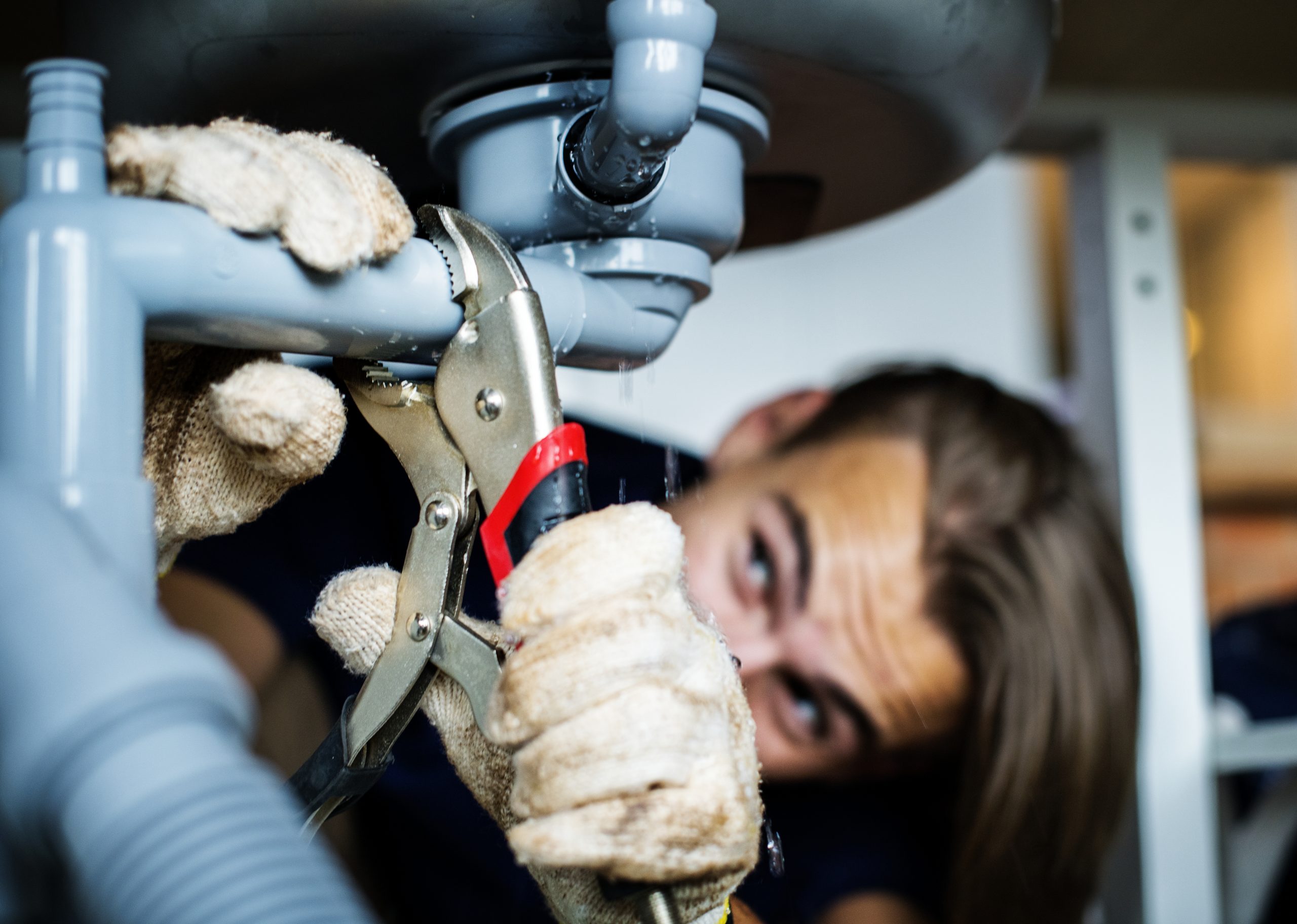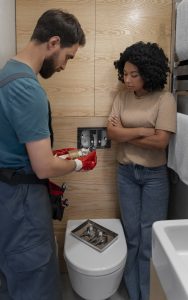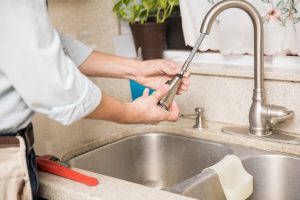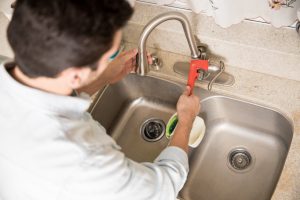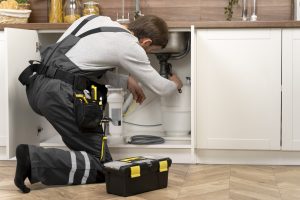There’s never a “good time” for a plumbing emergency.
It’s usually late at night, just when you’re about to relax, or early in the morning when the last thing you expect is the sound of water rushing where it shouldn’t be. Across the UK, homeowners face plumbing problems daily — a dripping tap that never stops, a drain that starts to gurgle, or a cold-water tank in the loft that suddenly overflows.
While these might start as minor inconveniences, they can quickly turn into disasters if ignored. Knowing the early warning signs — and acting fast — can save you from severe damage and expensive repairs.
Let’s look at the top 5 plumbing emergencies UK homeowners face most often, how to identify them, and when to call emergency plumbing services to get your home back to normal.
Dripping Taps That Refuse to Stop
At first, it’s just a small drip. You might even ignore it, thinking it’s nothing serious. But in reality, that steady tap could be wasting thousands of litres of water every year — and silently damaging your fittings.
A constantly dripping tap is usually caused by a worn-out washer or a faulty cartridge. In hard water areas like Hertfordshire, Essex, or Kent, mineral deposits corrode the tap’s internal valve over time, making it nearly impossible to tighten properly.
What starts as a faint trickle often becomes a steady stream. You might start noticing limescale stains around your sink or bath, or a slight rust mark where the water has been running constantly. Many homeowners delay calling a plumber because they think, “It’s just a drip.” Unfortunately, that small leak can soon weaken pipe joints, build internal pressure, and even lead to the tap snapping off completely — flooding your kitchen or bathroom in minutes.
When that happens, panic sets in. You rush to find the stopcock, but if it’s stuck or inaccessible, things can get messy fast. That’s why experts recommend calling emergency plumbing services as soon as a tap starts leaking. A professional can inspect the valve seat, clean any corrosion, and replace the washer or cartridge — usually within an hour.
In most cases, replacing a faulty washer costs under £50 — but if the tap fails completely, you could spend over £300 fixing the water damage.
Blocked Drains and Overflowing Toilets
Every UK homeowner has faced this nightmare at least once. You run the tap or flush the toilet, and instead of draining, the water rises — slowly at first, then alarmingly fast. The gurgling sound from the pipes tells you something is wrong.
Blocked drains can occur anywhere — kitchen sinks, bathroom showers, toilets, or outdoor gullies. In kitchens, grease, fat, and leftover food accumulate inside the pipe walls. In bathrooms, hair, soap, and sanitary items combine to create thick clogs that water simply cannot pass through.
It starts with a minor delay in drainage but can quickly become an emergency when wastewater backs up into your home.
Apart from the foul smell, blocked drains can lead to significant health hazards — bacteria, mould, and damp conditions that attract insects and damage flooring.
Many people try plungers or harsh chemical drain cleaners, but these often push the blockage deeper and corrode old metal pipes.
That’s when you need professional help. A 24 hour emergency plumbing service will use high-pressure jetting and mechanical drain rods to clear the clog safely, followed by a CCTV drain inspection to make sure no hidden blockage remains.
Drain Type | Urgency Level | Recommended Action |
Kitchen or bath drain | Medium | Try gentle plunging once, then call a plumber if slow flow remains |
Toilet or outdoor gully | High | Stop using immediately; contact emergency plumbing services |
“A blocked drain ignored today can become a flooded bathroom tomorrow.”
Once cleared, professionals usually disinfect the area and check if the main sewer line is intact — something most DIY methods overlook.
3. Overflowing Tanks and Burst Pipes – The 3 AM Nightmare
You wake up to the unmistakable sound of running water. Half-asleep, you step into the hallway and your feet land in something cold. A quick glance upward reveals the ceiling dripping, and panic sets in. If you’ve ever lived in an older UK property, this scene probably sounds familiar.
In most cases, it starts in the loft. The cold-water storage tank’s float valve jams or the ball arm snaps, allowing water to gush until it finds an escape route — usually through your ceiling light.
If it’s winter, the culprit could be a frozen pipe that’s just thawed and burst.
When this happens, seconds matter. The very first step is to turn off the main stopcock (often under the kitchen sink or in the utility cupboard). If the valve is stuck, don’t waste precious minutes forcing it — get help.
Switch off electricity to affected rooms and place buckets or towels under visible drips to limit the spread. Then call a 24-hour emergency plumbing service.
Professional plumbers will isolate the damaged line, cap or replace the faulty valve, and drain excess water safely. In severe cases they’ll use a wet vacuum and industrial dehumidifiers to prevent mould growth.
The cost of delay can be astonishing: within one hour you may only have surface damp, but after six hours plasterboard begins to sag; after twenty-four, you’re facing rotten beams and a ruined ceiling. Acting immediately isn’t overreacting — it’s smart homeownership.
4. No Hot Water or Boiler Breakdown – The Cold Morning Shock
Few things hit harder than an ice-cold shower on a frosty UK morning.
When your boiler stops producing hot water, it’s not just an inconvenience — it’s a warning sign. The issue may lie in the boiler itself, but it often points to a pressure imbalance or leak elsewhere in your system.
Most modern combi boilers shut down automatically when they detect trouble, but knowing what to check can save stress while you wait for help.
Look at the pressure gauge: if it’s below one bar, you may have a slow leak. Re-pressurising might get you through the day, but don’t ignore it — call qualified emergency plumbing services.
Common culprits include:
- A faulty thermostat or diverter valve
- Sediment build-up in heat exchangers (especially in hard-water areas)
- Frozen condensate pipes during cold snaps
Attempting DIY fixes on gas systems is never safe. Only a Gas Safe-registered engineer should handle them.
They’ll inspect the boiler, bleed airlocks, and restore safe pressure levels. A simple repair done early may cost under £150; a neglected one can climb past £1,000 once components corrode.
Hot water isn’t a luxury — it protects your pipes, your heating, and your comfort.
5. Low Water Pressure and Hidden Leaks – The Silent Thief
When every tap trickles instead of flowing, frustration is just the beginning. Low pressure usually means water is escaping somewhere unseen.
Small leaks under floors or behind plaster can persist for months, slowly damaging woodwork and racking up water bills.
In many older UK homes, joints loosen as pipes expand and contract with temperature changes. Add in limescale build-up and you’ve got a recipe for silent leaks.
Telltale signs include damp patches on walls, musty smells, or higher-than-usual bills.
Plumbers now use advanced acoustic sensors and thermal imaging to locate leaks without tearing up floors. Once they isolate the faulty joint or corroded pipe, repairs are swift.
If left unchecked, even a pinhole leak can waste 20 litres an hour — nearly half a bathtub — turning into serious structural damage over time.
Calling professional emergency plumbing services for leak detection early saves both money and frustration.
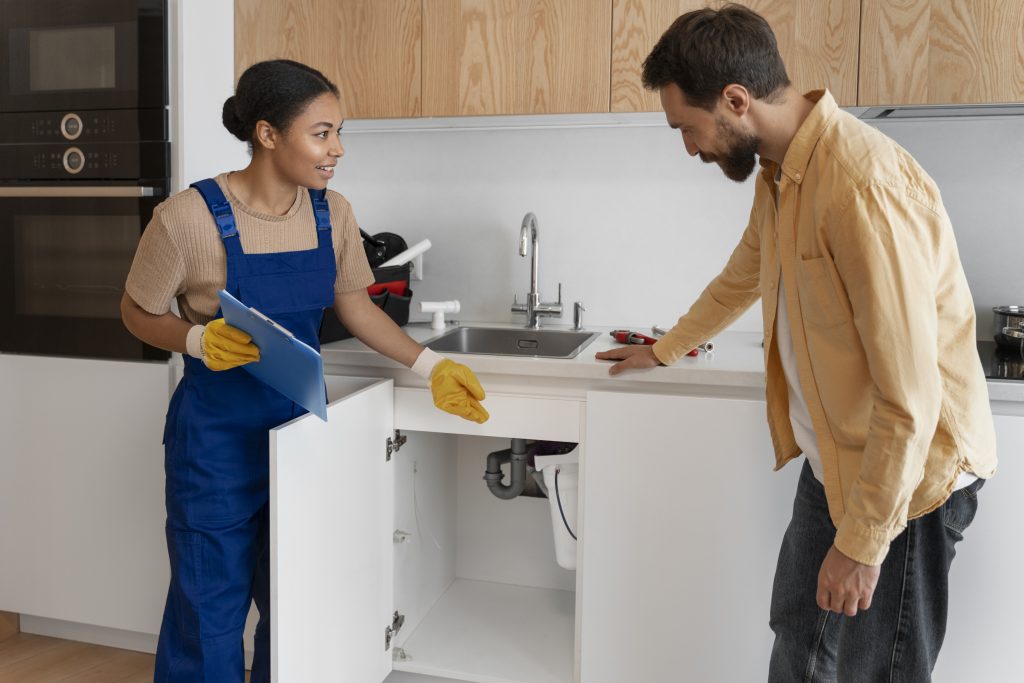
Bonus Emergency: Foul Smells and Gurgling Drains
A home that smells like rotten eggs isn’t just unpleasant — it’s dangerous.
Those odours indicate sewer gas escaping due to blockages or broken vent pipes. The gurgling noise after flushing is air struggling to escape past trapped water.
Ignoring this allows gas and bacteria to seep indoors, creating a health risk.
A professional will vent the system properly, clean traps, and, if needed, replace cracked sections of pipe.
When your drains start “talking back,” it’s time to listen.
Preventing Future Plumbing Disasters
Almost every emergency begins with a small warning. A few habits can prevent them entirely:
- Inspect taps, valves, and joints monthly for rust or damp rings.
- Drain outdoor pipes before winter to avoid freezing. Never pour grease or coffee grounds down the sink.
- Replace washers at the first sign of dripping.
- Schedule an annual inspection with a trusted 24-hour emergency plumbing service like EPG247.
Preventive maintenance might cost a few pounds now, but it saves hundreds later — and a lot of sleepless nights.
When Should You Call for Help?
Homeowners often wonder what actually counts as an emergency.
If any of the following apply, don’t wait for daylight:
- Water is flooding any part of your home.
- You’ve lost heating or hot water in freezing conditions.
- There’s a persistent sewage smell.
- A pipe has burst or you can hear running water with taps off.
A reliable emergency plumbing service operates day and night precisely for these moments. Their quick response can be the difference between a towel-dry mess and a full insurance claim.
Choosing the Right Emergency Plumber
Speed matters, but so does trust.
Before you call, check that the plumber:
- Is Gas Safe-registered and fully insured.
- Offers 24/7 call-outs with transparent pricing.
- Has strong local UK reviews.
Every certified and insured plumber should be fully equipped to handle anything from blocked drains to burst mains — ensuring fast, safe, and reliable repairs.
The Real Cost of Delay (sample)
Every hour counts once water starts leaking.
Delay Time | Typical Outcome | Approx. Repair Cost |
Within 1 hour | Minor patch repair | £100–£200 |
6 hours | Ceiling damp / flooring warp | £400–£700 |
24 hours+ | Structural damage & mould | £1,000+ |
Every minute counts once water starts spreading. Acting fast saves your home, your sanity, and your wallet.
Conclusion:
Don’t Wait for Trouble to Find You
Plumbing emergencies rarely arrive unannounced.
They whisper first — a slow drip, a strange smell, a tap that loses pressure. Those whispers turn into disasters only when ignored.
Whether it’s a burst pipe at midnight, a leaking tank in the loft, or a drain that won’t clear, one call to expert emergency plumbing services can stop the chaos before it starts.
So, if you ever find yourself staring at rising water or hearing that dreaded gurgle in the walls, don’t hesitate.
Call the professionals, shut off the water, and breathe — help is already on the way.
Need immediate help?
Contact EPG247 – Your Reliable 24-Hour Emergency Plumbing Service in the UK.
Fast response, skilled engineers, and complete peace of mind — because your home deserves nothing less.
What is considered a plumbing emergency in the UK?
Anything that risks flooding, sewage backup, or loss of heating/hot water — like burst pipes, overflowing toilets, or boiler failure.
Why does my tap keep dripping?
Usually a worn washer or faulty cartridge. Hard water in UK areas makes this happen faster.
How do I know if a pipe is frozen or about to burst?
Low water pressure, gurgling sounds, or frost on exposed pipes are early warning signs.
Why does my boiler stop working in winter?
Most commonly a frozen condensate pipe or low system pressure.
When should I call an emergency plumber?
If water is leaking, backing up, flooding, or you lose hot water/heating in cold weather — call immediately.

